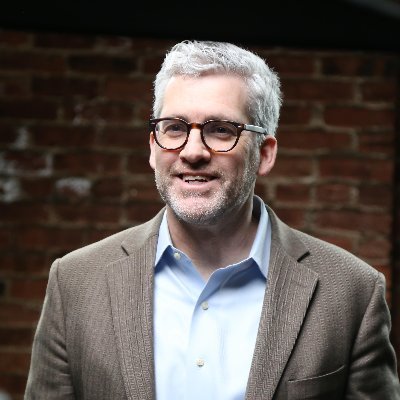
There are some essential resources to help you and your church navigate the current mental health crisis.
By Jamie Aten, Ph.D., & Kent Annan, M.Div.
We are in the middle of a mental health crisis. Seventy percent of adults in the United States have experienced a traumatic event. Over two-thirds of children have experienced a traumatic event by age 16. And 54% of families have been affected by a severe natural disaster. Research shows one in five adults experience mental issues such as depression and anxiety every year.
And you know these aren’t just statistics. These are people you know, who you’ve met and loved. And it may well be you.
More than ever, people turn to the church for spiritual and emotional care. But most churches aren’t equipped to care for mental health concerns. Without the proper training and resources, you and other leaders in your church will likely not know what to say, not know what to do, miss the signs of trauma, mistake everything for trauma, or experience burnout.
“Without the proper training and resources, you will likely not know what to say, not know what to do, miss the signs of trauma, mistake everything for trauma, or experience burnout.” — @drjamieaten, @kentannan Click To TweetBut there are resources you can use to help transform how you and your church connect with people desperate to find a safe place to heal and belong. We’ll discuss two specific church mental health resources in detail, along with several others we highly recommend.
The Church Mental Health Summit
On World Mental Health Day, October 10, 2023, Spiritual First Aid will join forces with Hope Made Strong and Biola’s Rosemead School of Psychology/Mental Health in the Church Initiative to present the fourth annual Church Mental Health Summit. This is a one-day virtual summit for anyone who wants to be strengthened as a leader, be equipped to support others, and learn practical tools they can use to build a culture of care at their church.
Registering for the summit will give you access to over 50 uplifting messages of hope and practical resources from expert presenters who will educate and encourage you and your church. The summit’s talks are organized around four tracks: church health, community health, leadership health, and missions and culture.
“On-demand sessions will address mental health issues—from leadership wellbeing to strategies for pastoral care—that matter most to church leaders,” said Laura Howe, founder of the Church Mental Health Summit.
Spiritual First Aid
The fact that you are reading this article means there is a high probability you are the sort of person others turn to for help when they are hurting, or maybe it’s your church they are reaching out to. If either describes you or your situation, then you’ve likely felt overwhelmed at some point as you’ve walked with others through mental health challenges. Know you aren’t alone in feeling this way.
We’ve spent our careers helping, training, and researching mass traumas around the globe, including a recent deployment to Ukraine. Yet, we sometimes still struggle with how daunting walking alongside others through mental health challenges can feel. We aren’t just talking about feeling overwhelmed in war zones. We have both felt this way in everyday church and community interactions, too. Spiritual First Aid is designed to equip others so they don’t have to keep worrying if they’ve done enough to help.
You and your church members can get certified in Spiritual First Aid by completing our six-session course that teaches frontline peer-to-peer spiritual and emotional care and trauma-informed best practices. The course will teach you Spiritual First Aid’s proven step-by-step BLESS CPR framework.
Similar to medical first aid which provides temporary care, BLESS CPR will help you and your church members master small actions that make a big difference. Think of Spiritual First Aid as an ice pack for spiritual and emotional injuries. If you sprain your ankle, applying an ice pack can help stabilize the pain, reduce swelling, and prevent the problem from worsening. This is how Spiritual First Aid works. But it also teaches you to know when, where, and how to refer others when professional care is needed. Our research shows that providing this kind of immediate help can reduce spiritual and emotional pain, speed recovery, and lead to long-term benefits. By the end of the course, you will have gained the practical training and tools to care for everything from mild stress to mass trauma.
Mental health, especially trauma, is complex. But with Spiritual First Aid, helping doesn’t have to be. So don’t keep guessing.
A beacon of hope and healing
As society grapples with mental health challenges, the church is uniquely positioned to offer hope to a hurting world. Now, more than ever, the church has a profound opportunity to be the hands and feet of Christ, especially for those seeking mental health support, belonging, and restoration. But doing so will take more than just mental health awareness; it will also require equipping. These are a few resources that serve as an essential starting point as you embark on this transformative journey, paving the way for you and your church to be a beacon of hope and healing amidst the mental health crisis.
“As society grapples with mental health challenges, the church is uniquely positioned to offer hope to a hurting world.” — @drjamieaten, @kentannan Click To TweetAdditional church mental health resources to explore
Below, we’ve shared several of Spiritual First Aid’s free resources. You’ll also find some of our favorite resources for helping churches address mental health issues from our Church Mental Health Summit collaborators, Hope Made Strong and Rosemead’s School of Psychology/Mental Health Initiative. To help you keep growing, we’ve included several additional resources from groups doing work in this area that we highly recommend (in no particular order):
- Free Spiritual First Aid Course Preview and Resource Pack
- The Care Ministry Podcast
- 101 Ways to Overcome Burnout E-Book
- Mental Health Sunday
- Flourishing Church Leadership Guide and Series Map
- Reaching Hurting Kids Workshop
- Celebrate Recovery
- 3 Steps to Building a Sustainable Care Ministry Guide
- Emotional Intelligence Coaching Training
- Helping Children Cope with Traumatic Events E-Book (Available in 7 Languages)
- Care Ministry Cohort
- Soul Health Assessment
- Flourishing Ministry Coaching
- 99 Self-Care Techniques for Christians
- Mental Healthy Podcast
- DivorceCare
- The Anxiety Opportunity Course
- Dr. Joshua Knabb’s Mental Health Manuals
- Loveology.org Relationship Resources
- Faith and Mental Health Reports
- Soul Care Monthly Semi-Silent Retreats
- Hope for Mental Health Starter Pack
- GriefShare
- Church and Mental Health Blog
- The Christian Psychology: Mental Health for 21st Century Christ Followers
- SYMBS (Pre-Marriage) Assessment
- Forgiveness and Couples Workbooks Resources from Dr. Everett Worthington, Jr.
- Becoming a Trauma-Informed Church Action Plan
- 130 Signs of Toxic Spiritual Leadership
For permission to republish this article, contact Marissa Postell Sullivan.

Jamie Aten
Jamie is the founder and executive director of the Humanitarian Disaster Institute and Blanchard Chair of Humanitarian & Disaster Leadership at Wheaton College (@WheatonHDI) and the author and editor of several books. He is a co-host of the award-winning The Better Samaritan blog and podcast and co-founder of Spiritual First Aid.

Kent Annan
Kent is director of Humanitarian & Disaster Leadership at Wheaton College (@WheatonHDI). He is author of several books and a co-host of the award-winning The Better Samaritan blog and podcast. He is also a co-founder of Spiritual First Aid.











